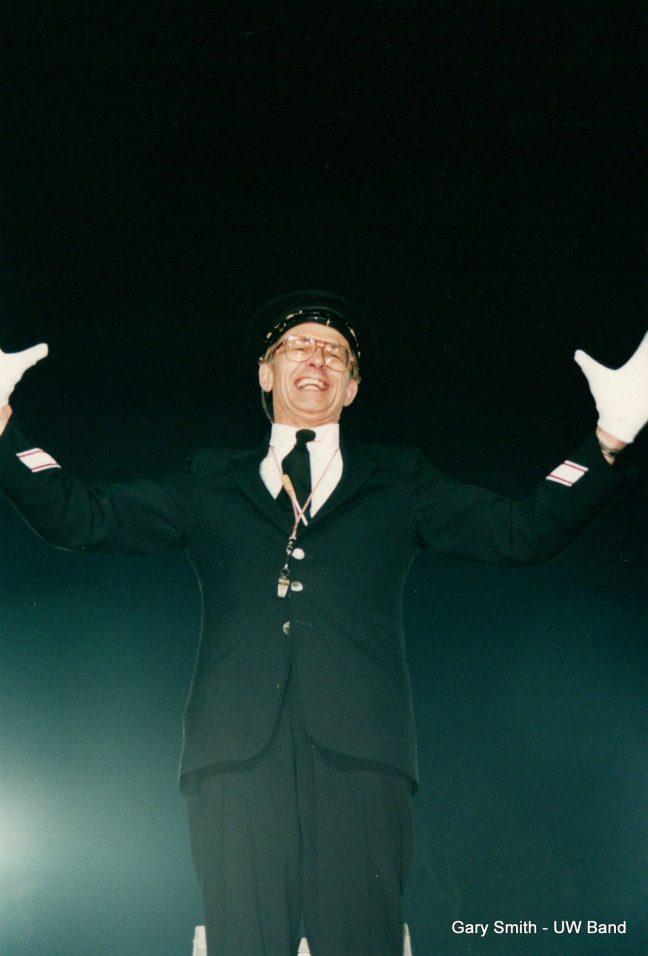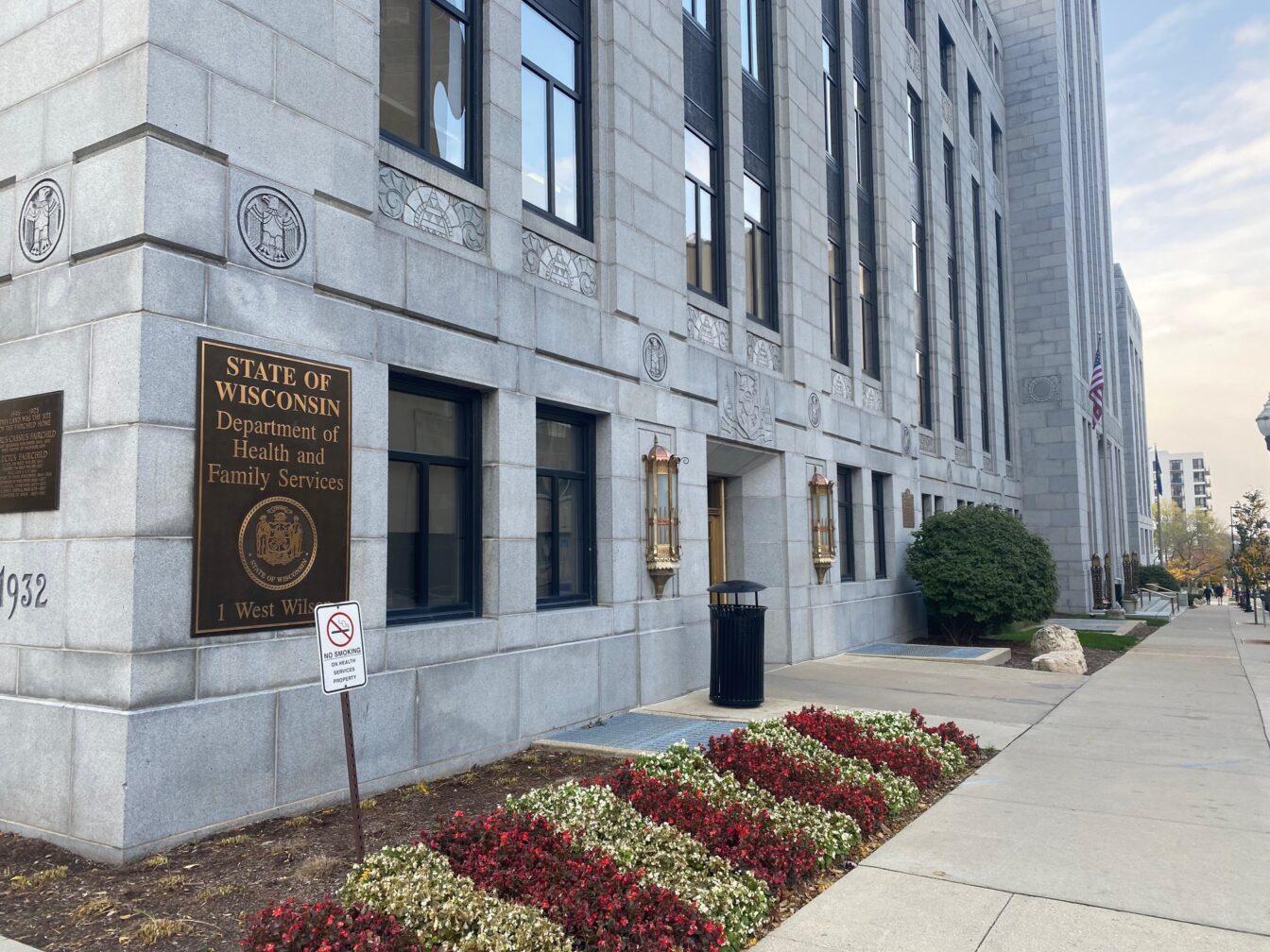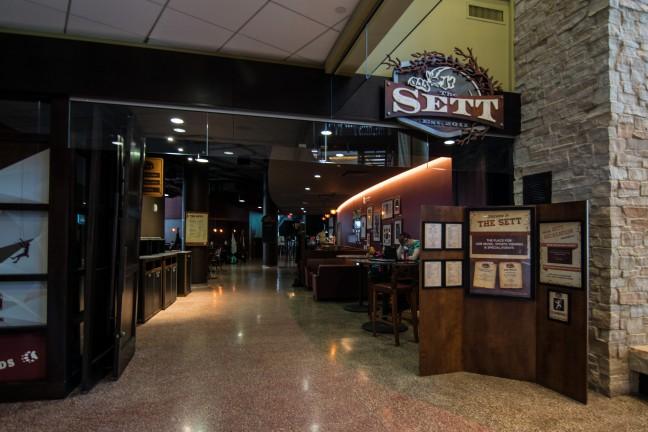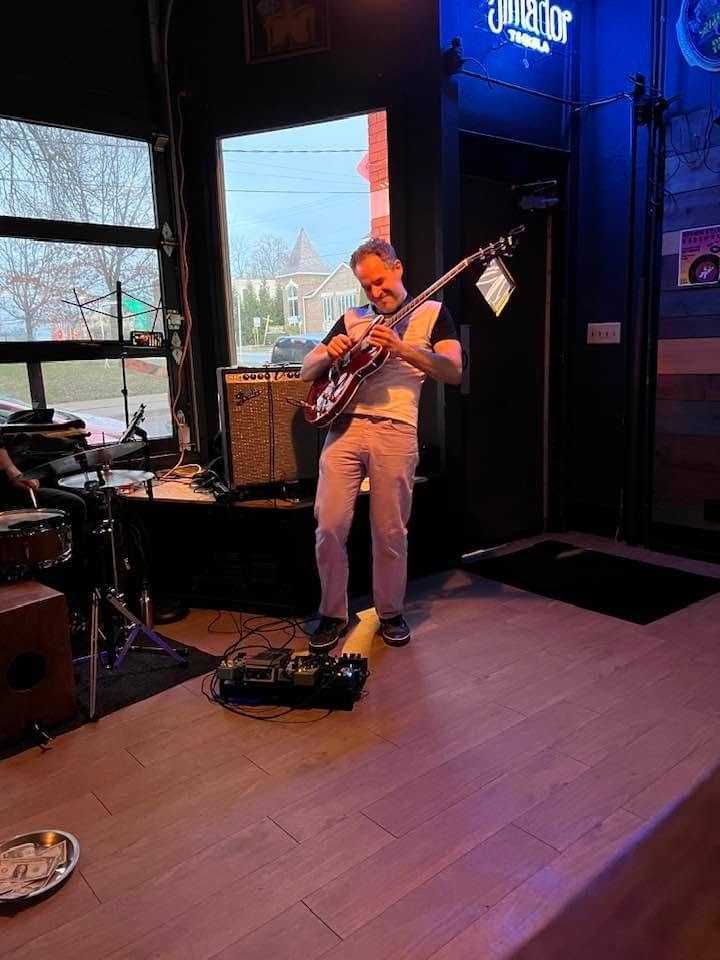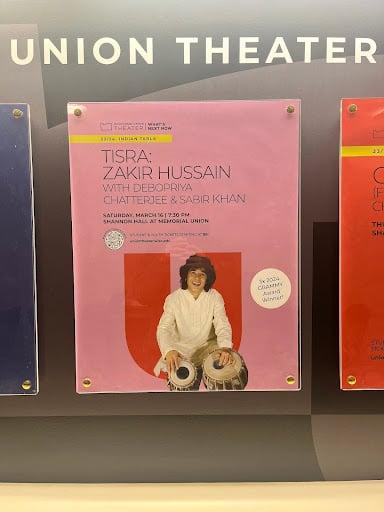“Right, left, pivot.” 83 year-old band director Professor Michael Leckrone hollered at the University of Wisconsin Marching Band as they rehearsed for their Sept. 30 performance at Lambeau Field.
The band followed Leckrone’s directions, and their shoes made a “slosh” sound against the wet turf as they stepped into their next position. There was a deluge of rain, but Leckrone and the band continued to strive for crisp, accented moves.
The band played the song “Sing, sing, sing” as they trudged through the rain to perform their newest halftime show. Leckrone stayed on the field with them although he was drenched in rain.
Because the show was new to the band, many band members struggled to perform the moves exactly as Leckrone had envisioned. The driving rain blurred out most things in sight, but Leckrone managed to find imperfections in the band’s formation with ease.
A month earlier, at a practice like today’s but much drier, Leckrone announced to the “Badger Band” that this season, his 50th at UW, would be his last.
“I insisted to the university that you’d be the first ones to know. I wanted you to be the first ones because you’re special,” Leckrone told the band members. “I don’t care whether it’s because you’re in the band for the first time or have never been in the band until you walked on this field last week, but it’s special. This band is special.”

While Leckrone is usually spotted conducting the band’s performances — including the football halftime shows, the fifth quarter and the annual spring Varsity Band Show — his home away from his hometown North Manchester, Indiana lies elsewhere on campus.
Leckrone’s office offered a stark contrast from the bleak reality of the Humanities Building. Warm wood paneling replaced harsh grey cement walls; knick knacks and plaques lined Leckrone’s desk and walls, each with a story begging to be told.
Leckrone and I shared a few laughs over an invoice from Tresona, a music licensing company that recently made the licensing process for educational bands and choirs more expensive and complicated. He notes that while some aspects of the job have become simpler and more efficient with time, such as his flying rigs for the annual Varsity Band Show, others have become more complicated.
One thing, though, has remained simple and pure: Leckrone’s love and passion for music.
First steps
While Leckrone has inspired many UW students throughout his career, Leckrone himself was heavily influenced by his father’s love of music.
“I grew up knowing nothing else than music,” Leckrone said. “I don’t have any memory of life without music being there.”
His father was the local high school band director. He kept a large record collection which Leckrone inherited. Leckrone still owns every record by Bix Beiderbecke, a jazz trumpeter who he remembers listening to with particular fondness.
Student journalist so committed, hit by bike while conducting interview
Leckrone and his father would often put on shows in the local community. There, Leckrone experimented with instruments like the trombone and the clarinet. While Leckrone considers himself primarily a trumpet player, he learned he could trick audiences into believing he had mastered all instruments by learning to play simple tunes on each one.
The thrill of performing, Leckrone said, drove him to pursue music.
“I don’t know that I set out to direct marching bands; I set out to be in music,” Leckrone said. “I think what made me decide was that nothing else had the appeal. It came down to the fact that [music is] what I felt happiest doing.”
Rising through the ranks
Tucked away behind his computer and multiple stacks of papers, a mug from Leckrone’s alma mater Butler University stands out among a room full of red and white.
While at Butler, Leckrone continued his streak as a “jack of all trades” when he received the unusual opportunity to play simultaneously in their classical, jazz and marching bands — musicians normally have to pick a genre to focus on at this time in their career.
Butler’s band director retired just as Leckrone finished his training. Inspired by his director’s mentorship, Leckrone started directing the Butler marching band program the fall of 1966. For three years, he directed not only the band but also other musical projects, including the men’s glee club for a period of time.
“I don’t know that I set out to direct marching bands; I set out to be in music. think what made me decide was that nothing else had the appeal. It came down to the fact that [music is] what I felt happiest doing.”
The UW band director position opened up in 1969, when the UW band was lost in a transitional period. UW’s football program was not performing well, so the band did not have an active performance schedule. Leckrone, however, saw a program with immense potential waiting to be unlocked.
“What I saw in Wisconsin was a band that had a great tradition and a great history,” Leckrone said. “ I saw it as a sleeping giant. It was something that had great potential but it hadn’t really been realized because no one more or less said, ‘Well, we’re going to try this.’”
Fine tuning
When Leckrone first took charge of the Badger Band in the fall of 1969, he sought to change the band’s character and bolster its confidence by asking its members to perfect drills and performance practices.
While he knew it was impossible to perfect a band overnight, he was determined to train the corps to have the most attentive ready-to-play position — “horns up,” in band speak — in the nation. This helped instill a greater sense of pride in the band members.
Leckrone also invented Wisconsin’s signature “stop at the top” style of marching, which was modified based on the standard “chair step” style adopted by most Big Ten bands at the time he became UW’s director.
“I wanted to keep that [higher] step, but as I saw the band in the stadium I wanted more energy.” Leckrone noted. “You have to march with that sense of energy, that sense of dedication. I wasn’t seeing it. I felt that if you put a little hesitation as one brings the foot up before they bring it down, it will appear to the eye that the step has more energy. People noticed it.”
These two improvements together brought attention to the band. Soon, interest to join the band increased. Leckrone, too, sought to turn the marching band from a seasonal activity to a year-long involvement.
The show sold out its first venue, Mills Hall, in 1976. The show then moved to bigger venues to accommodate its growing audience, eventually finding its home at the Kohl Center.
If you want to be a Badger
At the heart of the band’s growing success was Leckrone and the band’s dedication to preserving its spirit and integrity — their ability to “eat a rock.”
“When you go out tomorrow to do the show, you’ve got to be a lot tougher. You’ve got to be tough enough to chew nails,” Leckrone recalled saying in an after-rehearsal speech. “No, you got to be tough enough to eat a rock.”
As soon as the words came out of Leckrone’s mouth, the band started chanting “eat a rock.” Bands throughout the years have understood the meaning of this phrase.
The same pride and dedication underscoring the phrase “eat a rock” also carried through Leckrone and his band until they finally came across the chance to perform at the Rose Bowl in 1994, halfway through Leckrone’s tenure.
Across many disciplines, artists at UW learn their craft, hone intents, form communities
“It took me 25 years, that’s a career in itself. I thought it was never going to happen.” Leckrone reminisced. A picture of the band on the field at the first Rose Bowl hung on the wall behind him. “I felt like I had trained the band to believe that they were worthy of that performance. Then suddenly it did, almost without warning. Everybody jumped in as they never did before and frankly haven’t done since … It was so special.”
Though he has since been able to conduct at five more Rose Bowls, he said none of them matched his first outing.
While the band’s Rose Bowl performances are Leckrone’s proudest professional accomplishments, Leckrone himself is perhaps best known for reinventing the repertoire of the UW marching band.
“What I saw in Wisconsin was a band that had a great tradition and a great history, I saw it as a sleeping giant. It was something that had great potential but it hadn’t really been realized because no one more or less said, ‘Well, we’re going to try this.’”
Among his legacies is the shortened version of the song “On Wisconsin,” which he created by removing earlier verses to lead the band directly into the iconic “On Wisconsin” chorus that fans continue to sing along with every touchdown.
Leckrone wanted to program tunes that everyone would know and enjoy, so he incorporated rock-and-roll style beats into classic songs to appeal to both the older and younger crowds.
“Each act has to have its own identity, [but] I think it’s also important that you have segments of shows that can appeal to a lot of people,” Leckrone said. “I’ve said many times to people, ‘If you don’t like what we’re playing right now wait a minute, because we’ll be playing something completely different.’”
The band today has a diverse repertoire. While “All Night Long” by Lionel Richie may not be a traditional choice for a marching band set, the UW marching band plays it alongside other classics such as George Gershwin’s “Summertime” from Porgy and Bess. Songs from broadway shows Jesus Christ Superstar and The Music Man are also featured in the current season.
A different love
Broadway holds a particularly dear place in Leckrone’s heart. He fondly remembers watching different shows at the Great White Way in New York City with his late wife, Phyllis.
Tate Warren, a recent UW graduate and Badger Band alumnus, witnessed this love firsthand when a Nor’easter storm grounded a portion of the band in New York City this past spring. Warren was one of many band members who won tickets to see the Spongebob Squarepants musical on the trip. Whereas most lottery winners in the band invited their friends to the show, Warren invited Leckrone.
“Before the show started he explained to me that he used to go to Broadway every year with his wife before she passed away, and that it brought back a lot of memories for him to be there,” Warren said. “It made me reflect on how many different performances Mike has seen and conducted and that I was lucky to be able to sit next to him to watch one.”

Professional accomplishments aside, Leckrone insisted his proudest personal accomplishments stem from the love of his life, his late wife Phyllis. The pair began dating in the seventh grade and were married for 62 years until her passing last August. Leckrone said she has always assured him that he could pursue his passions with the band, even if that meant he couldn’t be at home as much as some husbands could.
When Phyllis passed, Leckrone’s children gave him a ring with her fingerprint engraved on it, which he wears on his right ring finger. On his left ring finger is his wedding band.
Hitting the right notes
Unlike his memory for Phyllis, Leckrone believes people’s memory of him will pass quickly because he typically is involved in only four years of people’s lives.
But freshman Kristen Schill said she decided to keep marching in college only after hearing about Leckrone’s leadership from her high school band director, Kurt Dobbeck, a Badger Band alumnus who attended UW in the early 80s upon Leckrone’s encouragement.
“The thing I remember most is that he pushed us to do excellent work all the time,” Dobbeck said. “One day in particular, we were at practice, and he ran out and came right in front of me. I knew all he wanted me to do was work as hard as I possibly could. From then on, I did it.”
Varsity Band concert back for 44th year, celebrates Camp Randall’s Centennial
Throughout his career, Leckrone’s work ethic has been guided by excellence. Although humble about his legacy, Leckrone hopes that the band will carry on his relentless pursuit of perfection.
“I try to avoid using the word perfection because I don’t think perfection is obtainable. I’ve seen many different types of performances, from marching band shows to Broadway, and I don’t think I’ve ever seen perfection,” Leckrone said. “I hope my passion of searching for that perfection gets passed down.”
For Leckrone, the key to perfection lies perhaps in the band’s confidence and dedication.
But for UW senior CJ Zabat, the band’s drum major, this perfection comes in the form of “moments of happiness” Leckrone has inspired Zabat to pursue on and off the field.
“Mike can’t promise you complete happiness, but he wants to promise you moments of happiness,” Zabat said. “Those are those moments where something is so awesome you feel so happy that you have to hold on to those moments throughout the bad moments … As I got further and further along [in college], I had to find the things that gave me those ‘moments of happiness’ and made me want to work hard.”
The beat goes on
Back on the field, the skies began to clear up. The back of the band began to perform to Leckrone’s choreography, which few marching band directors today can say they create by themselves.
After running the routine again, Leckrone determined the band was in good shape and dismissed them to hear drum major Zabat’s final message for the day.
After practice, members went up to Leckrone to ask questions about spacing in the formation. Another went up to return a bracelet Leckrone had lost on the field. A friend had given the bracelet to Leckrone to help reduce his arthritis. And although Leckrone believes the healing power of the bracelet to be purely psychological, he cherishes it for its sentimental value.
The drumline stayed behind to conduct a sectional practice after an already grueling two hours of rehearsal. Their beats can be heard from the bus stop a quarter mile away.
Even with Leckrone off the field, his music keeps marching on.








